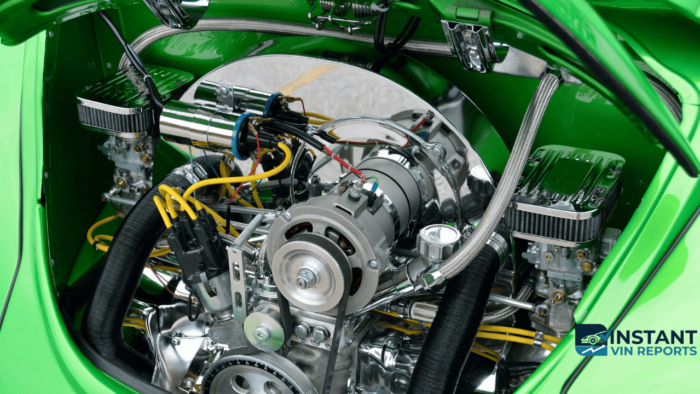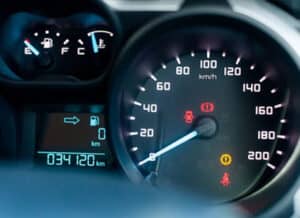A car engine is a complex symphony of moving parts, each playing its role in harmony to ensure your vehicle runs smoothly. But what happens when this harmonious melody is interrupted by an ominous knocking noise? If you’ve ever experienced that unsettling sound emanating from your engine, you’re not alone. Car engine knocking noise is a common issue that can leave any driver feeling anxious. In this article, we’ll demystify this phenomenon by exploring its causes, solutions, and prevention measures.
Understanding the Knocking Noise
Before we dive into the specifics, let’s decipher what the knocking noise in your car’s engine actually sounds like. It’s often described as a repetitive tapping, knocking, or pinging sound. This noise can occur at various points in the engine’s operation, such as during startup, acceleration, or idling.
Causes of Car Engine Knocking Noise
Low-Quality Fuel: Using lower-octane fuel than what your engine requires can lead to knocking. High-performance engines often demand higher-octane fuel to prevent knocking, as lower-octane fuel can ignite prematurely.
Carbon Deposits: Over time, carbon deposits can accumulate in the combustion chamber, leading to hot spots where knocking can occur. This is more common in older engines or those with poor maintenance practices.
Ignition Timing Issues: Incorrect ignition timing can cause the air-fuel mixture to ignite too early, resulting in knocking. Modern vehicles rely on precise electronic control, but older cars with distributor systems may experience timing problems.
Faulty Spark Plugs: Worn or damaged spark plugs can misfire, leading to knocking. Regular spark plug maintenance is essential to prevent this issue.
Excessive Engine Heat: High engine temperatures can cause knocking. Insufficient cooling or lubrication can exacerbate this problem.
Detonation: Detonation is an uncontrolled explosion of the air-fuel mixture in the cylinder. It creates a shockwave that manifests as knocking. Detonation can be caused by a combination of factors, including high compression ratios and excessively lean air-fuel mixtures.
These are some of the most common engine knocking causes, but it’s important to note that there may be other reasons causing this issue.
Knocking Noise in Engine: An Early Warning
That knocking noise in your engine may be unsettling, but it serves as an early warning system, signaling that something within your vehicle’s heart requires attention. Ignoring it can lead to more severe issues down the road, potentially costing you more in repairs.
Engine Making Tapping Noise: Seek Professional Insight
If your engine is making a tapping noise or any form of knocking, it’s essential to consult a professional mechanic. They can diagnose the issue accurately and recommend the necessary repairs or maintenance to ensure your engine runs smoothly and quietly once more.
Solutions for Car Engine Knocking Noise
Now that you’ve learnt what this noise is, and identified the potential reason for engine knocking, let’s dig into some solutions to this issue.
Use the Right Fuel: Always use the fuel recommended in your vehicle’s owner’s manual. If your car requires higher-octane fuel, don’t compromise with a lower grade.
Regular Maintenance: Ensure your vehicle receives regular maintenance, including cleaning the combustion chamber and replacing spark plugs as needed.
Check Ignition Timing: If you suspect ignition timing issues, have your vehicle’s timing checked and adjusted by a qualified mechanic.
Cooling and Lubrication: Ensure your engine is adequately cooled and lubricated to prevent excessive heat buildup.
Fuel Additives: Consider using fuel additives designed to clean carbon deposits and improve combustion efficiency.
Preventing Car Engine Knocking Noise
If you want to prevent this from happening to your car, here are some tips you can follow to avoid car engine knocking.
Follow Recommended Maintenance: Stick to the manufacturer’s recommended maintenance schedule to keep your engine in top shape.
Avoid Aggressive Driving: Smooth acceleration and avoiding aggressive driving behaviors can reduce stress on the engine and minimize knocking risk.
Stay Informed: Understand your vehicle’s specific needs and potential issues. Regularly monitor for signs of knocking or other engine problems.
Consult a Professional: If you encounter persistent knocking or other unusual engine noises, consult a mechanic for a thorough diagnosis and repair.
Car engine knocking noise is a symptom that shouldn’t be ignored. While it can be caused by various factors, understanding its root causes and taking proactive steps for prevention and maintenance can keep your engine running smoothly and ensure a quieter and more reliable ride. If you ever hear that unsettling knocking sound from under your hood, remember that it’s your engine’s way of signaling that it needs attention, and by addressing it promptly, you can enjoy a quieter and more reliable ride.










